#Carter Library
Text

President Truman receives a turkey from the National Egg and Poultry Board, 11/16/1949. Truman Library. NARA ID 200138.
Did Truman Pardon a Turkey?
The Truman Library has received many requests over the years for information confirming the story that President Truman "pardoned" a Thanksgiving turkey in 1947, thus initiating a Presidential tradition that continues to this day.
The presentation of a turkey to the President at Thanksgiving is a long-standing tradition. But these kids were not impressed.
Many believe that it was President Truman who first pardoned a turkey, but until President George H.W. Bush pardoned the turkey in 1989, the presented poultry was destined for the dining room!
In 1947, the National Turkey Federation and the Poultry and Egg National Board began presenting the White House with a turkey. Truman accepted the turkey…and most likely ate it.
Staff at the Truman Presidential Library have never found any documents, speeches, newspaper clippings, photographs, or other contemporary records in their holdings which refer to Truman pardoning a turkey.
However, after President Bush’s official announcement in 1989, the birds have retired to a farm after their moment in the spotlight.
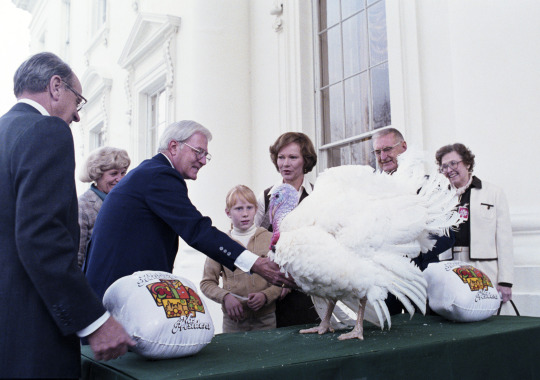
Amy and Rosalynn Carter meet with “Purdue Pete” and the National Turkey Foundation, 11/21/1978, Carter Library, NARA ID 6783240.
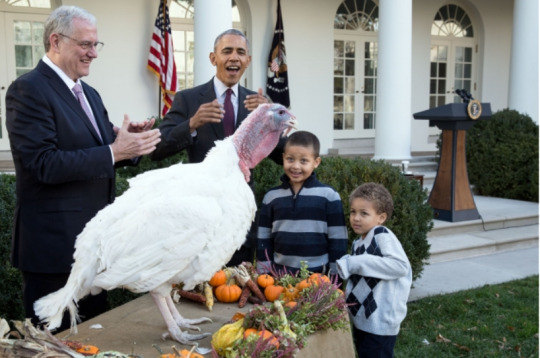
President Barack Obama and his nephews Austin and Aaron Robinson react to an unexpected commotion by Tot, the National Thanksgiving Turkey, during the pardon ceremony 11/23/2016, Obama Library, NARA ID 178713536.
See also: NARA's Thanksgiving-related online resources (National Archives News special topics page).
#thanksgiving#turkey#turkeypardon#white house#poultry#presidential history#presidents#Obama Library#Carter Library#bush library
33 notes
·
View notes
Text
Freddy Carter carried this season on his back, he was born to play Kaz Brekker & you can’t say otherwise
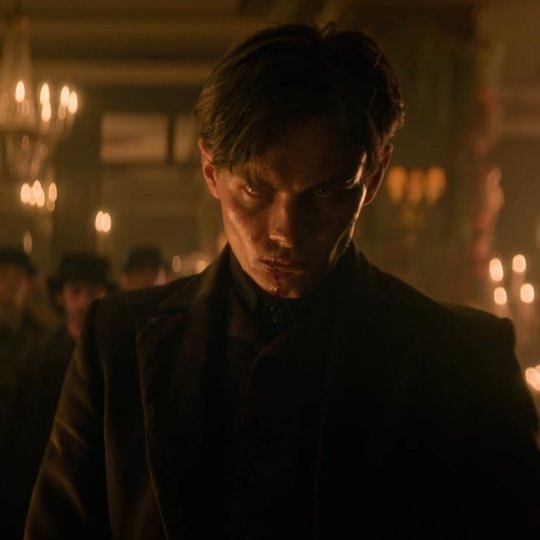
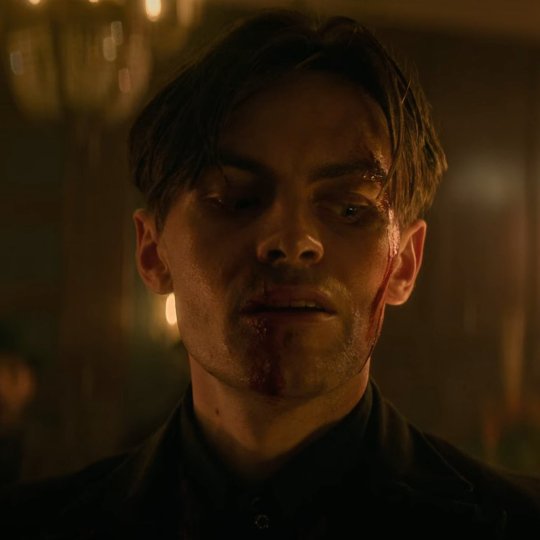
#freddy carter#kaz brekker#kaz#six of crows#crooked kingdom#shadow and bone netflix#shadow and bone#leigh bardugo#book#books & libraries#booklover
7K notes
·
View notes
Text
October, crisp, misty, golden October, when the light is sweet and heavy.
Angela Carter
#angela carter#october#literature#words#quotes#academia#dark academia#quote#lit#books#books and libraries#reading#quote of the day#bookworm#book quotes#prose#booklr#bibliophile
2K notes
·
View notes
Text
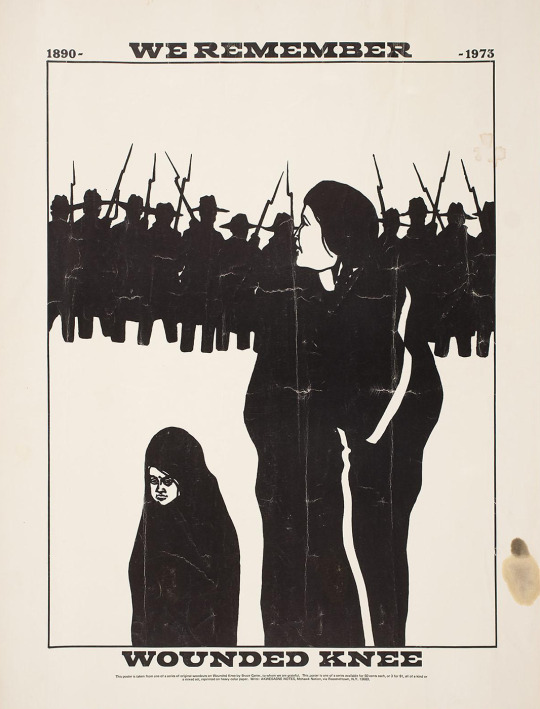
Wounded Knee Massacre, Wounded Knee Creek, SD, December 29, 1890 / 2023
Image: Bruce Carter, We Remember Wounded Knee 1890-1973, 1974 [Oakland Museum of California, Oakland, CA. Library of Congress, Washington, D.C.]
Plus: Dec. 29, 1890: Wounded Knee Massacre, Zinn Education Project
#graphic design#art#drawing#illustration#poster#wounded knee massacre#bruce carter#oakland museum of california#library of congress#zinn education project
161 notes
·
View notes
Text

Library date
You could only hear your footsteps echoing through out the building as you traversed the bookshelves. You scanned every shelf at least twice, in hopes to spot a book which caught your eye. Eventually, a book with a detailed spine and a colourful cover had your full attention.
Shifting slightly to the balls of your feet, you reached up and gently pulled the book from the shelf, holding it carefully as you made your way to the main area. The main area was an open space, surrounded by shelves of books, which had many seating options.
Weaving your way through the tables and chairs, you walked swiftly to your destination - a table in the back corner, with some of the most comfortable chairs you've ever had the pleasure of sitting on.
Your line of vision instantly focused on your boyfriend. Kaz sat on one side of the table, with his elbows and forearms leaning onto the table, allowing him to stare down at the words on the pages of the book he was currently reading. You had insisted, on multiple occasions before, that he should attempt to fix his posture, to try and reduce the risk of crippling his neck. But, he was adamant that he was perfectly fine.
Carefully, you pulled your chair out from under the table, making your move to sit down directly opposite to Kaz. He seemed too engrossed in his book to even acknowledge your presence. The slightly scraping sound of your chair didn't even cause him to shift his gaze from the seemingly intuiting book he was reading.
However, once you had gotten comfortable in your seat, you looked up and saw Kaz had focused his attention to you. He exchanged no words but raised an eyebrow curiously, looking down you your book and then straight back to you. You interpreted this as him wanting to see which book you picked out. Picking the book up from the table, you turned it around so that the front cover was facing towards Kaz so he could read it.
You watched as his eyes moved, following the lines of the text. His brown eyes met yours again and he offered an approved nod in your direction. He must of found your chose of book satisfactory. Soon enough his eyes drifted back down to his book.
Opening your book to the first page, you took a moment before staring. Attempting to be unobvious, you glanced up at your boyfriend, wanting to cherish the moment. It wasn't often that Kaz had the chance to take you out on a date - these quiet and peaceful moment were rather rare. It didn't help that your boyfriend looked angelic.
The sun reflected off the windows and caught his face just perfectly, enhancing his features and lighting him up. The details in his iris became more prominent and the way his hair shined added to its perfection. As he flipped to the next page in his book, you attention snapped to his hands. You couldn't help but be entranced by the way his hand's delicately moved the page and how the rested on the side on the book when not in use.
Once you relaxed you had been staring for a little too long and snapped out of your daze, you focussed back on your book and began to read. Rather quickly, the book was holding you hostage, and you were unable to stop reading. You had been to engrossed in the book that you hadn't realised Kaz was staring at you.
His eyes darted from every feature onyour face, to the clothes hanging on your body, and the way in which your hair was illuminated by the sun rays. He watched at how concentrated your eyes were and how your facial expressions would change dependent on the next sentence.
If someone had walked by and saw the look in his eyes, they would have called in pure awe or put love. Kaz lived for the simple moments he got to spend with you. Dates were far and few so he enjoyed them while he could. However, if you were to notice his staring then he would quickly deny it and act as if nothing happened.
An hour or so later, you and Kaz finished a chapter around the same time and agreed to get a hot drink. One of the reasons you both loved this specific library, was because it had its own little cafe inside which meant beverages were easy to access. Minutes later, you were both sat down at your table again, drinking your drinks in silence.
It was a comfortable silence - neither of you felt a need to start a conversation as all you needed was each others presence. For a split second you and Kaz made eye contact, you offered him a small smile. His gaze instantly shifted to somewhere behind you and you quickly picked up on the very slightly blush that coated his cheeks. A normal person probably wouldn't notice it, but you were used to picking up on the little details of your boyfriend.
Your smile only grew as you witnessed a tiny smirk make its way on the Kaz's face, it soon disappeared, but you were pleased you got to see it at least once while on this date.
The library suddenly darkened slightly. Looking out the window you saw a few grey clouds have ring over where the sun originally was. Not that you minded, you were sued to the dull and gloomy weather in Ketterdam. It could also be kind of nice on occasions.
You were brought out of your thoughts when you felt the texture of leather enclose around one of your hands. You swiftly looked down to notice Kaz's hand, holding yours in a very gentle and loose grip. You looked up to him, only to find him facing away from you, trying to avoid your eye contact.
Moving your focus back to the window, you weaved your fingers between a Kaz's, being carefully not to hold his hand too tight, in case he needed to draw away quickly.
Without realising, you both sat in that same position for the next thirty minutes or so - joined by your hands in the middle of the table, looking out of the window and watching as the grey clouds covered the whole of ketterdam. There was only peace between you and kaz as the rain drops began to fall from the clouds, and small smiles made their way onto your faces.
#kaz being kaz#kaz brekker#freddy carter smut#kaz brekker x reader#kaz brekker x reader smut#six of crows#kazzle dazzle#date night#library
168 notes
·
View notes
Text
#green moodboard#libraries#kara danvers#relatable#girls with tattoos#dean winchester#donald glover#anime scenery#liz vicious#agent carter#sabrina lynn
122 notes
·
View notes
Text
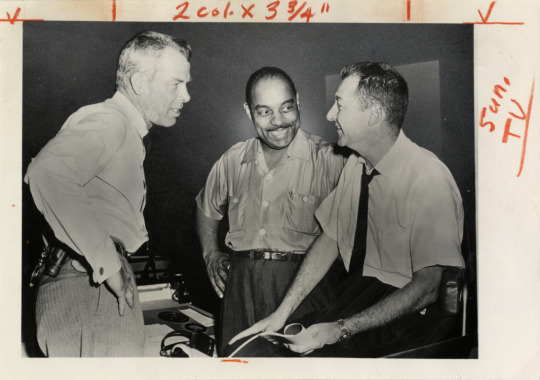
View of jazz musician Benny Carter, actor Lee Marvin and music director Stanley Wilson on the set of "M Squad." Clipping on back: "Jazz musician Benny Carter, center, joins actor Lee Marvin, left, and music director Stanley Wilson on the set of M Squad. Carter has been doing a live background musical score for several of the series episodes. Later the music will be available on records."
E. Azalia Hackley Collection of African Americans in the Performing Arts, Detroit Public Library
#benny carter#lee marvin#stanley wilson#m squad#music#actors#detroit free press#tv#vintage#vintage television#detroit public library
38 notes
·
View notes
Text
my taste in men lately is fictional hockey players with dimples and I have zero complaints
#darkacademia#books & libraries#books#bookworm#rule number five#jaxton ryder#the deal#garrett graham#consider me#carter beckett
61 notes
·
View notes
Text
"I'd love to," she finally said, "on one condition."
I steadied myself, hoping it wasn't something too awful.
"Yes?"
"You have to promise that you won't fall in love with me."
I knew she was kidding by the way she laughed, and I couldn't help but breathe a sigh of relief. Sometimes, I had to admit, Jamie had a pretty good sense of humor.
I smiled and gave her my word.
-A Walk To Remember
#quotes#book quotes#literature#books & libraries#life quotes#relationship quotes#love quotes#nicholas sparks#a walk to remember#jamie sullivan#landon carter
23 notes
·
View notes
Text




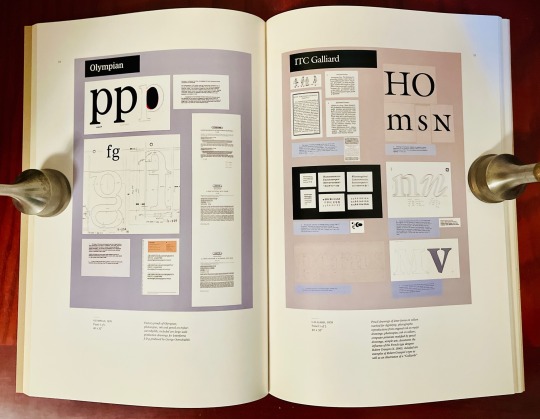
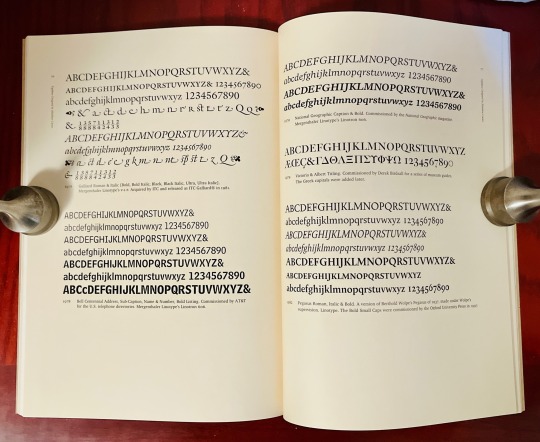
Book 475
Typographically Speaking: The Art of Matthew Carter
Margaret Re
Princeton Architectural Press 2002
Matthew Carter (b. 1937) is a legendary typographer whose name should be better known. The New Yorker once described Carter as “the most widely read man in the world,” owing to the ubiquitousness of some of his best-known fonts and type designs. Basically, everyone knows Carter’s work even if you don’t realize it. Verdana, Georgia, Tahoma, Galliard, along with scores of others—these were all created by Carter. But my favorite might be Bell Centennial, created in the 70s for use in phone books. On the occasion of their centennial, AT&T tasked Carter with creating a type that would use substantially less space than the then-current Bell Gothic without loss of legibility at the small sizes and poor printing process used for phone books. And even though I haven’t seen an actual phone book in years, I still have a clear memory of Bell Centennial and its clarity and functionality. Truth is, I think I kinda miss it. Phone books, too.
#bookshelf#library#personal collection#personal library#books#bibliophile#book lover#illustrated book#booklr#typography#typographically speaking#matthew carter#margaret re#Princeton Architectural press
11 notes
·
View notes
Text
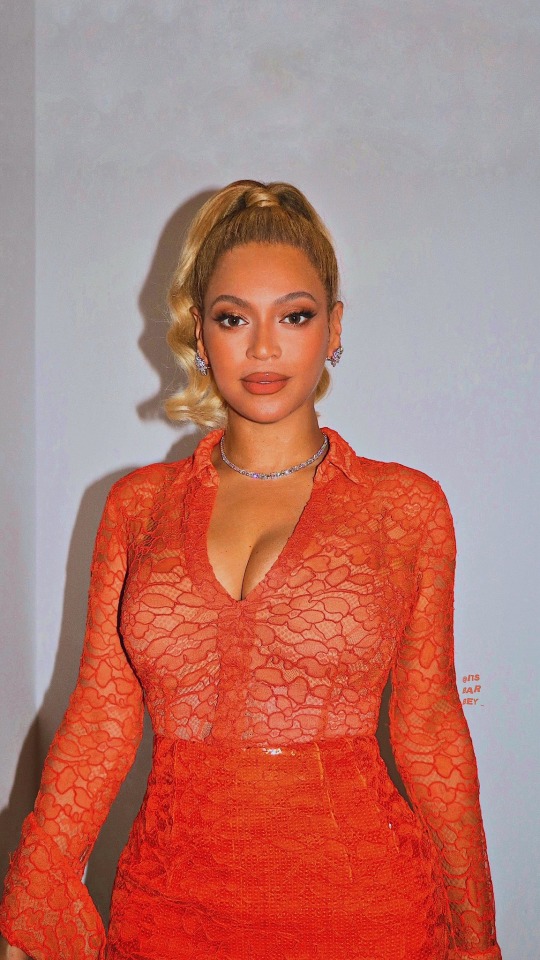
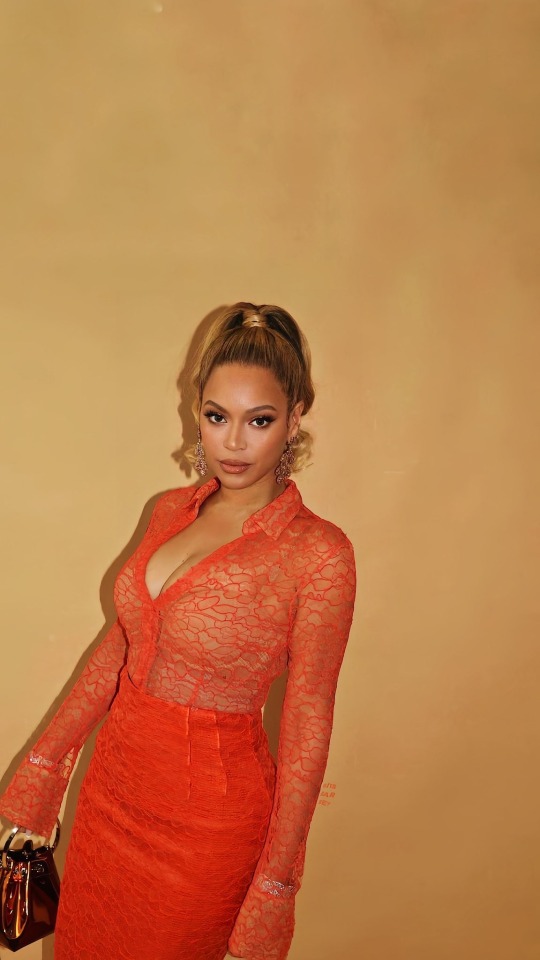
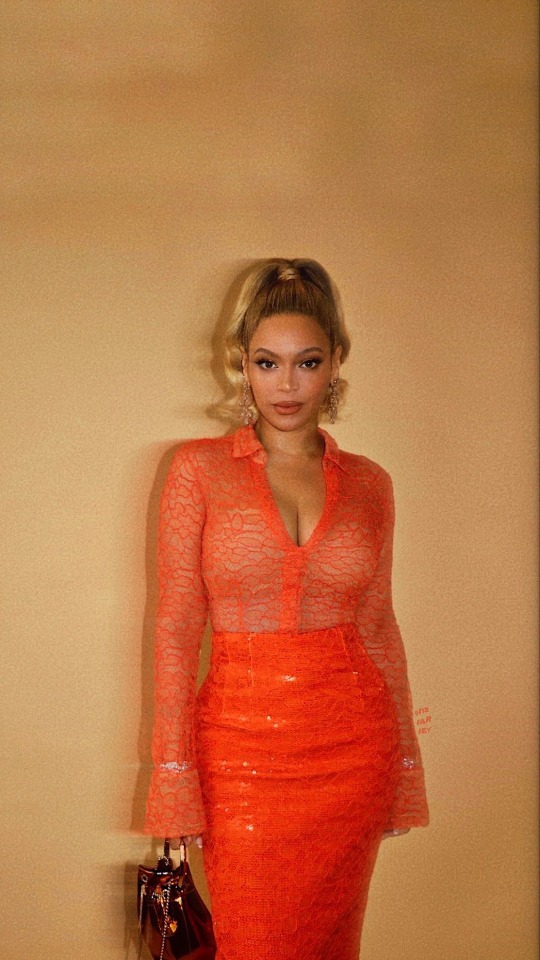
Beyoncé at the Brooklyn Public Library’s "The Book of HOV” exhibition, the day before it opened to the public. The exhibition is a celebration of JAY-Z’s unparalleled body of work. (7/13/23)
#beyoncé#beyonce#beyonce giselle knowles#queen bey#yoncé#beyhive#celebrity style#fashion#style#style fashion#style icon#stylish celebs#jay z#shawn carter#brooklyn public library#public exhibition
22 notes
·
View notes
Photo

HELENA BONHAM CARTER IN CONVERSATION WITH SIMON CALLOW | THE LONDON LIBRARY MAGAZINE | APRIL 2023
Helena Bonham Carter was joined by the writer and fellow actor Simon Callow at home this spring to discuss her new role: Library President. The two are longtime members and met filming the 1985 EM Forster adaptation A Room With a View. Bonham Carter was 19. It was the first of many Merchant Ivory productions for her, including Maurice and Howards End, before Hollywood called, with a role as the suicidal love interest in David Fincher's Fight Club. Work with her former husband, Tim Burton, came next, as well as a contribution to the Harry Potter franchise and more.
Callow's acting career includes stage roles in Shakespeare, Beckett, pantomime and contemporary theatre and beloved British films such as Four Weddings and a Funeral. He is a biographer of Oscar Wilde and Orson Welles and a renowned Dickens expert. This conversation has been edited and condensed for clarity.
HELENA BONHAM CARTER: Simon, it's very nice to see you here. Welcome to my Presidential home! I'm not having a clever day - do you find that, or are you always clever?
SIMON CALLOW: Always. But I think I might be daunted by being the President of The London Library. Such a wonderful title, such a wonderful entity.
HELENA: I love the title. The older I get, the more I like having conversations with dead people - for instance my dad, who made me a member when I was 21. For the Library to then ask me to be President...
SIMON: Fantastic.
HELENA : I used the Library a lot then, which was also when I first met you. I was sort of roaming and feeling lost, having a great time filming but feeling out of my depth everywhere. My peer group had gone to uni, and I was suddenly just on my own path and really unequipped to deal with it. I had a massive chip on my shoulder. So The London Library was my college. I felt legitimate, and I thought I could wander in and dress up like Virginia Woolf.
SIMON: It's like going right back to the source, isn't it? There it all is, and there they were.
HELENA: There they were! It's not only a conversation with my dead dad, but a conversation with EM Forster. If it was not for him, we wouldn't be here.
SIMON: A Room With A View is my favourite film of all the films I've been in, and I'm still astonished by its freshness.
HELENA: It still works.
SIMON: It really does. It was my second film and I was incredibly relieved - I'd been in Amadeus and detested every second. When I got the script [for A Room With A View] Ismail [Merchant, the producer] said to me: "We want you to play the leading part!" So I thought, "This is great, he sees me as George. I'll go on a diet immediately." Then my agent discovered I was in fact playing the Reverend Beebe. And I thought, "No, outright no." I was terribly hurt.
HELENA: And totally miscast.
SIMON: Beebe's the fat old parson; I can't possibly play him. Finally I gave in to discover that suddenly I was with the aristocracy of British film and theatre: Maggie [Smith], Judi [Dench] and Fabia Drake, no less. And you. Who was completely new.
HELENA: I was a foetus.
SIMON: What I remember about you then was the incredible speed with which you spoke.
HELENA: Oh, seriously? That's like my daughter.
SIMON: You would change tack in the middle of a sentence and contradict yourself.
HELENA: I don't think that's changed. I'm interested that I spoke at all. I remember myself as a mute, a total mouse, and so in awe of everyone. I was aware that you were a writer and talking about Mozart a lot, so I thought, "He's the Renaissance man that I have to become." Also, without being too indiscreet, you were one of the kinder adults.
SIMON: Fabia was an absolute holy terror. What was great was to be working on a script drawn from such a wonderful novel. Ruth [Prawer Jhabvala, who adapted the original novel for the film] incomparably excelled at weaving the words from the novel into a real script, so that these were really people talking to each other. My favourite scene in any movie I've acted in is our scene at the piano.
HELENA: It was the most important scene. You, as Mr Beebe, caught Lucy [Honeychurch, my character] playing in private. He's so tender and I love that. "If only you knew how to live as you play."
SIMON: Beebe, certainly as written by Ruth - less so by Forster actually - is essentially benevolent. I remember the first read through, in London somewhere?
HELENA: I was terrified. Maybe it was the first time I read with Maggie and Judi.
SIMON: Maggie terrified me by saying, "Why are you calling him 'Beebe'? It has to be 'Bee-be'. Beebe sounds as if we're at the Beeb!" Were you always a great reader of novels?
HELENA: Quite a good reader, though I was slow. I was taught at English A Level by Penelope Fitzgerald.
SIMON: I knew and loved her. Was she a good teacher?
HELENA: Extraordinary. Did you ever read Offshore? I love that. But I thought it would be good to look as if I read, because then every heroine in every book or film was a reader or writer. I wanted to be Judy Davis in My Brilliant Career. It was probably quite healthy, instead of fixating on a physique, which is what most people do these days because of Instagram. I wasn't very sexual for a long time.
SIMON: You were wearing lots of clothes.
HELENA: So many clothes.
SIMON: One couldn't even begin to guess what the woman beneath would be.
HELENA: No, there wasn't a body.
SIMON: It was extraordinary, you were a sort of Oxfam shop on two legs.
HELENA: I don't know where that came from. I think I had a real complex. Maybe because I was in such a male world. I went to Westminster [School], which was all boys, so before I even walked into period movies, I was dressed as a Victorian. It was always about pretending to be in the past. I over romanticised or felt I belonged in the past, actually.
SIMON: The biggest relationships in my young life were with my grandmothers. I asked one to make me an 18th-century costume for a Christmas present.
HELENA: Oh, I love that. So you dressed up as Mozart?
SIMON: In effect. I loved the fabrics, the shimmer of it all.
HELENA: On Maurice [1987] I did hair and makeup for all the men, which was rather a good way of dating people. It was Tinder then. In terms of influence, how important were your parents?
SIMON: The only one of my family that read novels was my grandmother, though she never talked about them. A book can be just for you. You have a relationship with the characters and have somehow subsumed them into your psyche.
HELENA: I always feel like you want to share the wonder.
SIMON: Your family are very literary, aren't they?
HELENA: Well, my grandmother Violet definitely was, on my dad's side. She was [Prime Minister H H] Asquith's daughter [and president of the Liberal Party from 1945-47]. My maternal grandmother was a special character, but found it difficult to read. I think she would have been diagnosed as dyslexic now, but she wrote beautifully. My mum, her whole life has never been without several books. My dad developed cortical blindness, which meant he couldn't see faces, but could read, so he read his way through the last 24 years of his life. We had half of The London Library in our home because they'd send him books.
SIMON: Oh, fantastic.
HELENA: Violet was formidable and wrote a lot of letters. I came back from filming with Woody Allen in a monastery in Taormina, and Dad was editing them. There was a postcard to her husband in 1940 saying: "Have just finished Morgan's latest Howards End." She knew Edward Morgan Forster. When I came to film Howards End with you, I read Violet's [unfinished] autobiography and thought, "Oh god, she was basically like the Helen Schlegel character, a sort of radical bohemian, a bluestocking..." And would have been the same age. So maybe she was a bit of a model for Helen.
SIMON: Forster wasn't a recluse until later at King's College Cambridge, I think.
HELENA: Did you ever get a sense of what he was like?
SIMON: Everything in his life was the opposite of what he espoused: the passion, the connecting. This gives his work its force, because it didn't come easily to him. He had to struggle to make it happen.
HELENA: He did have relationships though, didn't he?
SIMON: Famously with a married policeman, Bob Buckingham. But also earlier, in Alexandria, and later, with a Bulgarian art collector, 45 years his junior. All very discreet. As a young gay man, I was impatient with him. Instead of thinking how extraordinary it was for its time, I just thought, "Come on, we've gone beyond all of this". It felt a bit spinsterly. Now I think it's passionate and unbelievably brave and exquisitely written. Then, I was more taken by DH Lawrence, which was all oceanic... My entire ambition was to be a writer. Do you write?
HELENA: I've been asked to, and I've written the odd article. My attention span is troubling, but I do enjoy it when I apply myself.
SIMON: I have to work very hard at it, and do terrifically long days. I can be at the laptop by seven.
HELENA: In the morning? Jeez. OK, so you've got Morning Brain.
SIMON: I've got a night brain, too. But no afternoon brain.
HELENA: The afternoon is not really good for much.
SIMON: Yes. I have difficulty in the theatre, rehearsing in the afternoon.
HELENA: I have to have a snooze, no matter what. The snooze has been a pillar of my living. Do you ever write in books when you're reading them, or is that sacrilegious?
SIMON: I do when I'm reviewing, but that's with proofs, so I can scrawl all over them.
HELENA: I've got a thing about having a relationship with a book, so I will, unfortunately, write sentences in them. Also in the hope that somehow it's going to stick in the brain.
SIMON: Let's talk about the Library - its location, for instance. St James's Square is enchanting.
HELENA: Yes, and I do think that places work magic on us and influence what we think. It is very creative. Also, just silence. To go and sit with others with no danger of conversation, but you've got the company of other people concentrating. If you're going to seriously write, it could be very lonely. You have to go to battle with yourself, but it's alleviated at the Library because you're with other people who are going into battle with themselves.
SIMON: Libraries generally have a very curious combination of this quietness and focus, coupled with a very sexy feeling. It's the silence.
HELENA: I was going to raise that, but you start.
SIMON: I wonder why that is exactly. It's just because everybody's in their own space and in their own world somehow, and you know that as you drift into that sort of semi hypnotic state, sex is going to be in there somewhere.
HELENA: Yeah, it's always there.
SIMON: So it's the subconscious. It's sort of milling around the Library. I think I said this before, it's like a book bordello. You just go up and take whatever you want to.
HELENA: Have your pleasure. I like that.
SIMON: The Library's postal service is also miraculous. And everyone's so sympathetic. Years ago, my dog acquired a passion for 17th-century literature; it turns out it was the fish glue used to bind the spines. One day I came home and there was a priceless volume in pieces all over the place. I offered to replace it somehow but the Librarian said: "I have dogs; I understand."
HELENA: How do you use the Library?
SIMON: Not for writing or reading. Just to borrow books. The collection of arcana is vast. Writing about Orson Welles, I needed to know what it was like to be a tourist in Morocco in 1930. The Library had six - six! - guides from the period. I don't know anywhere else I could have found that. I love clambering up the metal stairs and finding things that nobody's taken out for 100 years.
HELENA: You think George Eliot is going to actually appear.
SIMON: It still is enchanting to me to do that.
HELENA: As a writer, do you have a ritual?
SIMON: Procrastinate as long as possible. I was so relieved to discover that Ibsen could spend four hours rearranging his desk before starting to write. Unlike Dickens.
HELENA: He just sat down?
SIMON: He was always writing at least two things at once, sometimes more - he wrote the last of The Pickwick Papers and the first chapters of Nicholas Nickleby simultaneously. He worked it all out, I'm sure, on his long walks.
HELENA: Have you seen his original manuscripts?
SIMON: Almost illegible; you feel the heat of his creative energy. He talks about the characters dancing down the pen.
HELENA: I love that - when somebody takes possession.
SIMON: As with acting: when it's good, it's not you playing the character, it's the character playing you.
#helena bonham carter#simon callow#the london library#interviews#2023#interviews: 2023#the london library magazine 2023
36 notes
·
View notes
Text
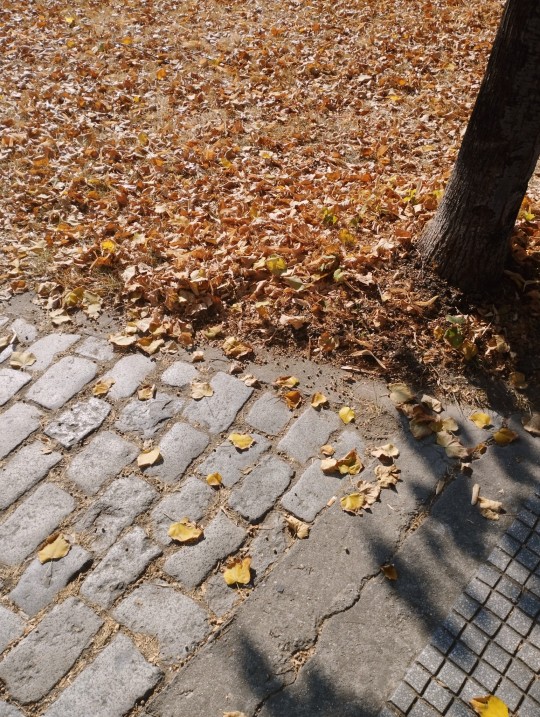
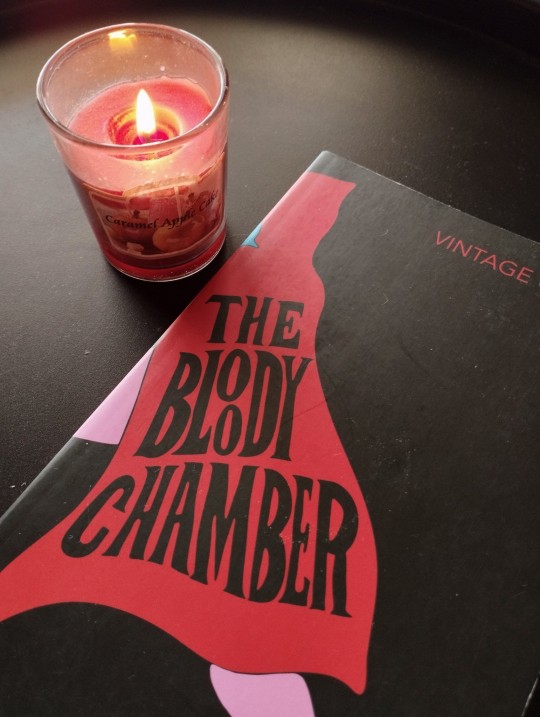
in love with this book (insta)
#books#books & libraries#currently reading#literature#photography#reading#studyblr#studyspo#bookblr#autumn#aestethic#nature#angela carter#the bloody chamber#gothic literature#🥀
66 notes
·
View notes
Text
Maltober Day 2: Books
To walk the stacks of Miskatonic’s special collections was to walk through a forest of ghosts. To do it day in and day out, without falling prey to their whispers was a skill partly innate and partly learned through years of service and more than one unfortunate slip-up.
A soft noise of curiosity interrupted him, and he turned in time to catch the man’s hand before it pulled a book free.
“Ah, best not, Mister Carter,” he said gently.
“Sorry!” Roland tucked his hands into his pockets with a warm, if sheepish, huff of laughter. “Curiosity and cats, you know.”
[ also on AO3 ]
#//juri speaks#i wrote a thing#malevolent podcast#maltober#oc: roland carter#boy survived The Horrors™ and immediately decided to go back to america and visit the most haunted ass library possible
10 notes
·
View notes
Note
Will all the presidents who are still alive right now be buried at their presidential libraries when they die?
John F. Kennedy is buried at Arlington National Cemetery and Lyndon B. Johnson is buried in a family graveyard near the LBJ Ranch, but every other President since Herbert Hoover has been buried on the grounds of their Presidential Library or Museum (Gerald Ford's Presidential Library and Presidential Museum are in separate locations and he's buried at his Museum), so that's the most likely scenario for the Presidents who are still living today.
Jimmy Carter will be buried in the yard of his longtime home in Plains, Georgia (which is a National Historic Site) instead of his Presidential Library in Atlanta.
Bill Clinton will be buried on the grounds of his Presidential Library in Little Rock, Arkansas. This is actually where Clinton's grave will eventually be located:

For many years, George W. Bush was going to be buried at the Texas State Cemetery in Austin and he and former First Lady Laura Bush had even chosen their plot already. However, following the death of Bush's mother in 2018 and her burial at the George H.W. Bush Presidential Library in College Station, Texas, the former President and his wife decided that they will eventually be laid to rest at the George W. Bush Presidential Library, located at Southern Methodist University in Dallas.
We don't know where Barack Obama or Donald Trump will be buried. Obama is building his Presidential Center in Chicago, but it is apparently against the law for people to be buried anywhere other than cemeteries in Chicago.
President Biden also has not revealed any plans about where he will eventually be buried. However, nearly all of President Biden's immediate family members have been buried at the parish cemetery of St. Joseph on the Brandywine Catholic Church near Wilmington, Delaware, including Biden's parents, his first wife Neilia and infant daughter Naomi (who were killed in car accident in 1972), as well as his beloved son, Beau, who died of brain cancer in 2015. Considering how tight-knit Biden's family has been, I would not be surprised if that will someday also be the President's final resting place.
#Presidents#Presidential Graves#Presidential Gravesites#Presidential Burials#Presidential Burial Sites#Presidential Funerals#Presidential Deaths#Presidential Libraries#History#Jimmy Carter#President Carter#Bill Clinton#President Clinton#George W. Bush#Bush 43#President Bush#Barack Obama#President Obama#Donald Trump#President Trump#Joe Biden#President Biden
36 notes
·
View notes
Text
The woods enclose and then enclose again, like a system of Chinese boxes opening one into another; the intimate perspectives of the wood changed endlessly around the interloper, the imaginary traveller walking towards an invented distance that perpetually receded before me. It is easy to lose yourself in these woods.
Angela Carter, “The Erl-King”
#book quotes#angela carter#the bloody chamber#literature#books and libraries#fairy tales#woodland quotes#books and reading#quotes#walking in nature#nature
52 notes
·
View notes